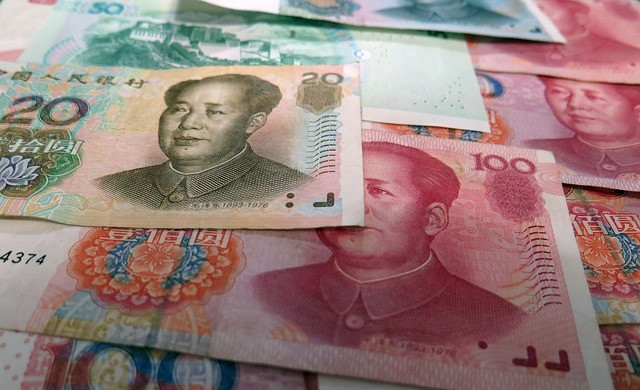China's economy is still seeing record levels of corporate borrowings -- and debt -- and the reemergence of shadow banking as a severe threat to the economy.
A survey by the China Beige Book, which claims to be the world's only large-scale independent data on the Chinese economy, reveals the fourth quarter as "the weakest of 2019" amid ominous signs cash flows deteriorated quickly. Beige book data also shows a continuing drop in new orders and record-high levels of corporate debt. The survey involved more than 3,300 Chinese business firms.
"It is easy to discount a seemingly unceasing trend of worsening cash flow, since it in some ways is a feature of the system," said the report. "But even by Chinese standards, Q4 late payables and deliverables soared -- to the worst levels we've recorded.
The continuing drop in new orders remains puzzling because companies are reporting higher revenue in the fourth quarter. Manufacturing saw the strongest revenue improvement compared to Q3 but profits were "muted," according to the report.
Demand might not hold up, according to the report, which said firms might not yet have understood the message their customers are sending. The message is consumer demand is slowing down.
More worrisome for China's struggling economy are record levels of corporate borrowing in Q4. China Beige Book said loan applications nationwide soared to an all-time high, while rejections sank to an all-time low.
It said for the first time since 2012, it saw each of China's four core sectors -- manufacturing, retail, services, and property -- report over 30% of firms borrowing. Also ringing alarm bells is the big-time return of shadow banking and the consequent rise in business loans.
Shadow banking, which is either a boon or a bane to China's economy, consists of unregulated and far took risky lending activities by non-banks. The main customers for shadow bankers are China's small to medium firms, which contribute to most of China's economic growth but still have a more difficult time getting loans from banks compared to state-owned enterprises (SOEs). This snubbing leads many smaller firms to resort to shadow banking for the money they need to keep their businesses going.
China Beige Book's data reveals the proportion of loans from non-bank lenders soared to nearly 40% in the fourth quarter of this year compared to just 29% in the same period in 2013.
The fourth quarter is the third straight quarter where shadow banking represented two out of every five loans in China. China Beige Book points out this fact might seem surprising considering Beijing continues to maintain that shadow banks have largely been erased since 2017.
"Borrowing rose in every sector this quarter outside of manufacturing (where credit access had been rising for 5 consecutive quarters through Q3-19). But the distinctive feature in Q4 was a spike in borrowing -- both in the loan and bond markets -- in parts of the economy where cash flow tightened significantly," said Shehzad Qazi, managing director at China Beige Book to CNBC.
Qazi said firms say shadow bankers are paying little heed to official data refusing to acknowledge their resurgence. The report said it's shown in past China's economy isn't even credit-constrained, much less starved. "That's now become an understatement," said China Beige Book.
China's corporate debt has risen alarmingly since 2008. It's ballooned by over 60 percentage points over the last eight years to 2017 as a percentage of GDP. As of 2017, China's corporate debt stood at 160.3 percent, raking it behind Hong Kong's (232.2 percent), but well ahead of Japan (99.9 percent) and the United States (73.6 percent).





